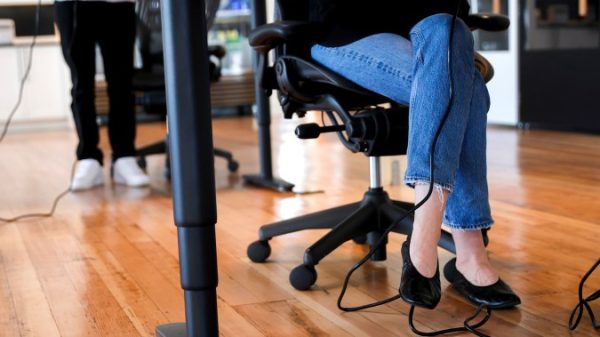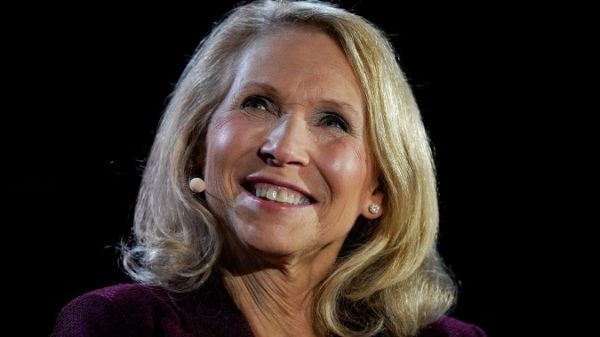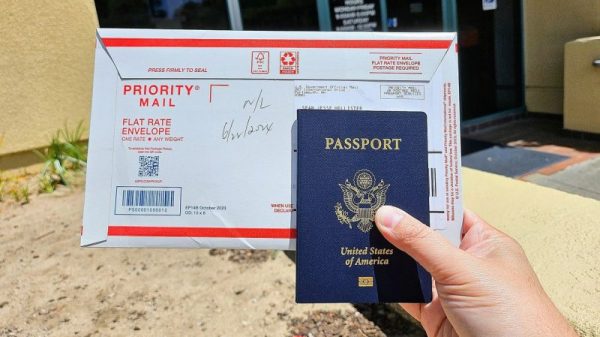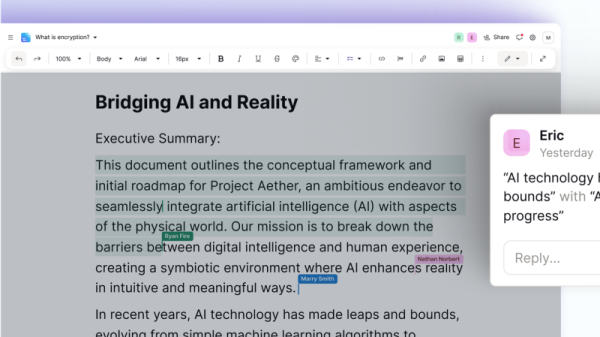Indicted former Trump White House chief of staff Mark Meadows wants to move his Georgia case to federal court. The motivation seems apparent. Even if he can’t ultimately get his charges dismissed, expanding the jury pool beyond heavily Democratic, Atlanta-centered Fulton County could improve his chances.
But only so much. A new poll reinforces something we kind of already knew: that when it comes to Trump’s efforts to overturn the 2020 election, Georgia stands somewhat apart, even among Republicans.
The new University of Georgia poll for the Atlanta Journal-Constitution shows that, as with other state and national polls, Donald Trump is the overwhelming front-runner in the Republican presidential primary. He leads Florida Gov. Ron DeSantis 57 percent to 15 percent.
But it also shows that even many Republicans in the swing state seem to regard Trump’s attempts to overturn the 2020 election as problematic — more so than GOP voters nationally.
The poll shows that among likely GOP primary voters, more regard the charges against Trump as serious than not serious. While 44 percent say they’re either “not too serious” or not at all serious, 49 percent say they’re at least “somewhat serious.” The split among Republicans only — not including GOP-leaning independents — is nearly even.
That’s hardly overwhelming concern about the charges. But other polls have tested similar questions and found significantly less GOP concern:
In a recent national ABC News/Ipsos poll, Republicans said 51 percent to 38 percent that Trump’s federal election-related charges weren’t too serious.A Quinnipiac University poll showed an even wider split, with Republicans saying by a more than 2-to-1 margin that the federal charges weren’t too serious. Just 3 in 10 said they were at least “somewhat serious.”Previous national and swing-state Quinnipiac polling showed fewer than 4 in 10 Republicans thought Trump’s federal classified-documents charges were at least “somewhat serious.”
And that’s not the only finding from the new poll that suggests Georgia Republicans are more likely to see something potentially amiss in Trump’s actions.
While Trump has labeled his Jan. 2, 2021, phone call with Georgia Secretary of State Brad Raffensperger (R) a “perfect call,” likely GOP primary voters were actually more likely to label Trump’s outreach to Georgia GOP officials as “inappropriate” (41 percent) than “appropriate” (32 percent).
That’s in contrast to national polling shortly after the call was disclosed a day later by The Washington Post; in that polling, Republicans nationwide said by a nearly 2-to-1 margin that Trump’s Raffensperger call was appropriate.
The new poll also shows that 36 percent of likely Georgia Republican primary voters are at least “somewhat” concerned that Trump’s indictments will make him a weaker general election candidate. That’s more than a recent national Monmouth University poll found. The Monmouth poll pegged that number at around 1 in 4.
These findings come with caveats beyond the fact that Trump still holds a wide lead in Georgia. Likely primary voters there overwhelmingly see the criminal charges as being politically motivated, and 61 percent still falsely believe there was widespread fraud in the state, as Trump claimed. It’s also just one poll.
But to the extent that Georgia is a somewhat unusual case in which Republicans take a dimmer view of Trump’s actions, that perhaps shouldn’t be too surprising.
Part of the reason Georgia is the only state to have brought an election-related prosecution against Trump, Meadows and the others seems to trace to the fact that its laws on that front are broad.
But an undersold reason is that its government is dominated by Republicans, in contrast to other contested states, in which Democrats held key posts like governor and secretary of state. Trump appeared to have believed he could lean on the many GOP officials in charge of the process there, such as Raffensperger and Gov. Brian Kemp.
Perhaps more than any other state, Georgia also featured vocal pushback on Trump’s voter-fraud crusade from those top Republicans, including Kemp, Raffensperger, his aide Gabriel Sterling, the then-lieutenant governor and others. (Georgia Republicans were also more critical of Trump after his indictment this month than Republicans were nationally.)
That appeared to have mattered in the 2022 election. Perhaps no state was as unfriendly to Trump-backed election “truthers,” with six Trump candidates losing in high-profile primaries. They included former senator David Perdue losing to Kemp by a stunning 50-plus-point margin, and Raffensperger even survived his own primary against an incumbent congressman — something many deemed unfathomable when he went toe-to-toe with Trump after the 2020 election.
It’s valid to ask whether this poll shows that the sensibilities leading to the unusual 2022 results in Georgia have filtered down into views of Trump’s legal jeopardy in the state. Certainly, it could also be that Republicans there are more familiar with the circumstances, because they saw it up close.
Either way, with Georgia potentially being the early focal point of Trump’s election-related legal problems, it’s something worth watching. And where so many in the Republican Party fear standing up to Trump, Georgia continues to suggest a united front can have at least some impact.
Indicted former Trump White House chief of staff Mark Meadows wants to move his Georgia case to federal court. The motivation seems apparent. Even if he can’t ultimately get his charges dismissed, expanding the jury pool beyond heavily Democratic, Atlanta-centered Fulton County could improve his chances.
But only so much. A new poll reinforces something we kind of already knew: that when it comes to Trump’s efforts to overturn the 2020 election, Georgia stands somewhat apart, even among Republicans.
The new University of Georgia poll for the Atlanta Journal-Constitution shows that, as with other state and national polls, Donald Trump is the overwhelming front-runner in the Republican presidential primary. He leads Florida Gov. Ron DeSantis 57 percent to 15 percent.
But it also shows that even many Republicans in the swing state seem to regard Trump’s attempts to overturn the 2020 election as problematic — more so than GOP voters nationally.
The poll shows that among likely GOP primary voters, more regard the charges against Trump as serious than not serious. While 44 percent say they’re either “not too serious” or not at all serious, 49 percent say they’re at least “somewhat serious.” The split among Republicans only — not including GOP-leaning independents — is nearly even.
That’s hardly overwhelming concern about the charges. But other polls have tested similar questions and found significantly less GOP concern:
In a recent national ABC News/Ipsos poll, Republicans said 51 percent to 38 percent that Trump’s federal election-related charges weren’t too serious.A Quinnipiac University poll showed an even wider split, with Republicans saying by a more than 2-to-1 margin that the federal charges weren’t too serious. Just 3 in 10 said they were at least “somewhat serious.”Previous national and swing-state Quinnipiac polling showed fewer than 4 in 10 Republicans thought Trump’s federal classified-documents charges were at least “somewhat serious.”
And that’s not the only finding from the new poll that suggests Georgia Republicans are more likely to see something potentially amiss in Trump’s actions.
While Trump has labeled his Jan. 2, 2021, phone call with Georgia Secretary of State Brad Raffensperger (R) a “perfect call,” likely GOP primary voters were actually more likely to label Trump’s outreach to Georgia GOP officials as “inappropriate” (41 percent) than “appropriate” (32 percent).
That’s in contrast to national polling shortly after the call was disclosed a day later by The Washington Post; in that polling, Republicans nationwide said by a nearly 2-to-1 margin that Trump’s Raffensperger call was appropriate.
The new poll also shows that 36 percent of likely Georgia Republican primary voters are at least “somewhat” concerned that Trump’s indictments will make him a weaker general election candidate. That’s more than a recent national Monmouth University poll found. The Monmouth poll pegged that number at around 1 in 4.
These findings come with caveats beyond the fact that Trump still holds a wide lead in Georgia. Likely primary voters there overwhelmingly see the criminal charges as being politically motivated, and 61 percent still falsely believe there was widespread fraud in the state, as Trump claimed. It’s also just one poll.
But to the extent that Georgia is a somewhat unusual case in which Republicans take a dimmer view of Trump’s actions, that perhaps shouldn’t be too surprising.
Part of the reason Georgia is the only state to have brought an election-related prosecution against Trump, Meadows and the others seems to trace to the fact that its laws on that front are broad.
But an undersold reason is that its government is dominated by Republicans, in contrast to other contested states, in which Democrats held key posts like governor and secretary of state. Trump appeared to have believed he could lean on the many GOP officials in charge of the process there, such as Raffensperger and Gov. Brian Kemp.
Perhaps more than any other state, Georgia also featured vocal pushback on Trump’s voter-fraud crusade from those top Republicans, including Kemp, Raffensperger, his aide Gabriel Sterling, the then-lieutenant governor and others. (Georgia Republicans were also more critical of Trump after his indictment this month than Republicans were nationally.)
That appeared to have mattered in the 2022 election. Perhaps no state was as unfriendly to Trump-backed election “truthers,” with six Trump candidates losing in high-profile primaries. They included former senator David Perdue losing to Kemp by a stunning 50-plus-point margin, and Raffensperger even survived his own primary against an incumbent congressman — something many deemed unfathomable when he went toe-to-toe with Trump after the 2020 election.
It’s valid to ask whether this poll shows that the sensibilities leading to the unusual 2022 results in Georgia have filtered down into views of Trump’s legal jeopardy in the state. Certainly, it could also be that Republicans there are more familiar with the circumstances, because they saw it up close.
Either way, with Georgia potentially being the early focal point of Trump’s election-related legal problems, it’s something worth watching. And where so many in the Republican Party fear standing up to Trump, Georgia continues to suggest a united front can have at least some impact.























